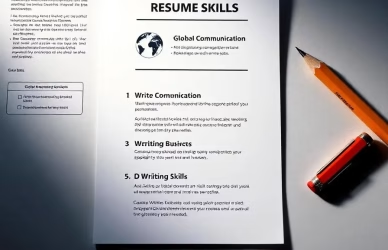Job interviews are pivotal moments in the hiring process. They provide you with the opportunity to showcase your skills, qualifications, and personality. More importantly, they allow potential employers to assess whether you’re the right fit for their company. However, asking the wrong job interview questions can seriously hinder your chances of landing the role. Knowing what to ask is just as important as knowing what not to ask.
In this blog post, we’ll explore 10 questions you should avoid asking during a job interview, why they could negatively impact your candidacy, and what you can ask instead to make a positive impression.

Why Your Job Interview Questions Matter
The questions you ask during an interview reveal much about your character, level of preparation, and enthusiasm for the role. They give you the chance to learn more about the company, but they also allow you to show your interest, thoughtfulness, and professionalism. Asking well-crafted job interview questions demonstrates that you’ve done your research, are curious about the company’s culture and values, and are committed to understanding the role in depth.
On the flip side, asking inappropriate or irrelevant questions can portray you as unprofessional, unprepared, or uninterested in the job. Being mindful of the questions you ask can help steer the interview in a positive direction. By knowing which job interview questions to avoid, you’ll create a better rapport with the interviewer and strengthen your candidacy.
1. “What Does This Company Do?”
This question sends an immediate red flag. Asking what the company does shows a lack of preparation and interest. Before attending any job interview, it’s essential to research the company—this is non-negotiable. With the vast resources available online, including company websites, LinkedIn profiles, and news articles, there’s no excuse for not being informed.
Instead of asking basic job interview questions like this, you could frame your inquiry more positively. For example, ask about specific projects the company is working on or recent industry changes that might affect its operations. Questions such as “How has your company adapted to recent changes in the industry?” demonstrate that you’re informed and eager to learn more about the company’s role in the market.
2. “How Soon Can I Get a Raise?”
Although salary discussions are a critical aspect of any job offer, asking about a raise during the interview, especially in the early stages, can make you seem focused on the wrong things. This type of question can signal that your primary interest lies in compensation rather than the job itself or contributing to the company.
If you’re curious about growth and salary progression, consider rephrasing your job interview questions. For instance, you might ask, “What are the opportunities for professional development within the company?” or “What does the path to promotion typically look like here?” These questions show that you’re thinking about your long-term future at the company while still focusing on how you can grow within the role.
3. “What’s the Salary for This Position?”
While compensation is undoubtedly an important aspect of any job, asking about salary too early in the interview process can give the impression that you’re only interested in the paycheck. Salary and benefits discussions are best left for the negotiation stage—ideally, after you’ve been offered the job or at the very end of the interview process.
Instead, focus your job interview questions on understanding the role, company culture, and expectations. Asking about what success looks like in the role or what the key challenges are will give you valuable insights without coming across as self-centered. Salary negotiations will naturally follow if the interviewer feels you’re a good fit for the position.
4. “How Soon Can I Take a Vacation?”
Asking about vacation time during the interview process can give the impression that you’re more interested in time off than contributing to the team. This question, like the one about salary, is something best discussed after an offer has been made, or when the employer brings it up.
Instead of focusing on vacation time during the interview, ask job interview questions that highlight your commitment and eagerness to make a positive impact. You might say, “Can you describe the team dynamic here?” or “What are the most immediate priorities for someone starting in this role?” These kinds of questions show that you’re thinking about how to integrate into the team and contribute to the company’s success.
5. “Do You Conduct Background Checks?”
This question can raise red flags for the interviewer, implying that you have something to hide. Most companies perform background checks, but asking about it during the interview can seem suspicious and unnecessary.
If you have concerns about something that may come up in a background check, it’s better to wait until the employer brings it up. In the meantime, focus your job interview questions on the role and your ability to contribute to the company. Asking about recent company successes or team accomplishments will shift the focus back to your skills and interest in the job.
6. “How Soon Can I Be Promoted?”
While it’s great to be ambitious, asking how soon you can get promoted during the interview can make you appear presumptuous and uninterested in the role you’re being interviewed for. Employers want to hire people who are dedicated to succeeding in the position they’re applying for, not those who are already thinking about moving up the ladder.
If you’re curious about career progression within the company, try asking job interview questions like, “What does success look like in this role?” or “Are there opportunities for growth and development within the team?” These questions demonstrate your interest in excelling in the current role while still inquiring about future opportunities.
7. “Can I Work from Home?”
In today’s job market, remote work is more common than ever, but asking about it too soon can give the impression that you’re more interested in the perks than the job itself. If the job listing doesn’t mention remote work, assume that the role is office-based unless the employer states otherwise.
If working from home is important to you, consider asking job interview questions later in the process or waiting until you’ve been offered the role to discuss flexible working arrangements. A better question might be, “How does your team typically collaborate?” or “Can you describe a typical day in this role?” These questions give you insight into the company’s working environment without directly asking for remote work from the start.
8. “Will You Monitor My Social Media?”
This question implies that you may have something to hide on your social media accounts. Most employers do check social media as part of their hiring process, but asking this job interview question can raise concerns about your online behavior.
Before applying for jobs, make sure your social media profiles are professional and align with the image you want to present to employers. If you’re worried about your online presence, it’s best to clean up your accounts ahead of time rather than asking the interviewer about it.
9. “What Are the Working Hours?”
Although it’s important to know what’s expected in terms of working hours, asking about this too early can make it seem like you’re more concerned with how quickly you can leave work than with succeeding in the role. If working hours are a concern, it’s better to phrase your job interview questions in a way that shows you’re interested in the company’s culture and expectations.
For example, you could ask, “Can you describe the company’s approach to work-life balance?” or “What does a typical workday look like in this role?” These questions will give you a better understanding of the company’s expectations without making it seem like you’re only concerned with when the clock strikes five.
10. “Can I Choose My Projects?”
Job interview questions about choosing your projects can give the impression that you’re not a team player or that you’re only interested in doing what you find most enjoyable. Most jobs require collaboration and working on a variety of projects that contribute to the company’s overall goals.
Instead, ask questions like, “Can you tell me about some of the key projects the team is working on right now?” or “How are projects typically assigned within the team?” These questions show that you’re interested in contributing to the team and learning about the work environment without coming across as inflexible or self-serving.
Final Thoughts on Job Interview Questions to Avoid
Asking the right job interview questions can set you apart as a thoughtful, engaged candidate. However, asking the wrong questions can have the opposite effect, making you seem unprepared or more focused on your own needs than the company’s. By avoiding these 10 common pitfalls, you’ll make a strong impression and improve your chances of landing the job.
Focus on asking job interview questions that demonstrate your enthusiasm for the role, your commitment to contributing to the team, and your interest in the company’s success. When done right, your questions can be as valuable as your answers in the hiring process.




